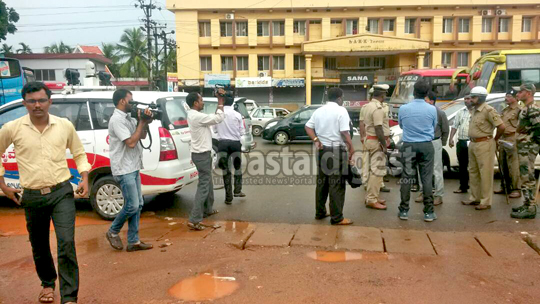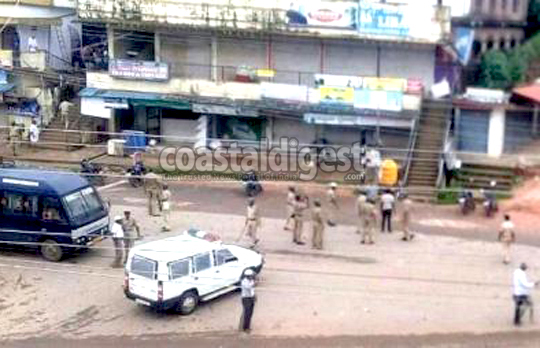Mangaluru, Jun 21: The murder of a local leader of Social Democratic Party of India on Wednesday at Benjanapadavu village has exacerbated communal tensions at neighboring Kalladka town in Bantwal taluk.

Police resorted to mild baton charge to disperse mob at Kalladka junction within an hour after armed miscreants hacked Mohammed Ashraf, SDPI’s Ammunje unit president, to death at Benjanapadavu on Wednesday morning.
As part of precautionary measures, the police asked the locals in Kalladka to shut down their shops and commercial establishments and remain at homes.
Meanwhile, RSS leader Prabhakar Bhat along with his followers reportedly forced some locals to open their shops. This led to a tense situation in the town for some time. When local residents began to gather, police intervened and canned the mob.
The local residents accused Kalladka Bhat of deliberately trying to disrupt peace in the society. Security was further tightened in the town after the murder.
Deputy Commissioner K G Jagadeesha and Inspector General of Police (Western Range) P Harishekaran also visited Kalladka to oversee the security measures.
Also Read: Bloodshed continues in Bantwal taluk: SDPI activist brutally hacked to death





Comments
when you know who is disturbing peace why don't you encounter him
This iz peak time for business az eid is approching. Businessman invested crores of stocks for eid. Coz of bhatta they r loosing business
Add new comment